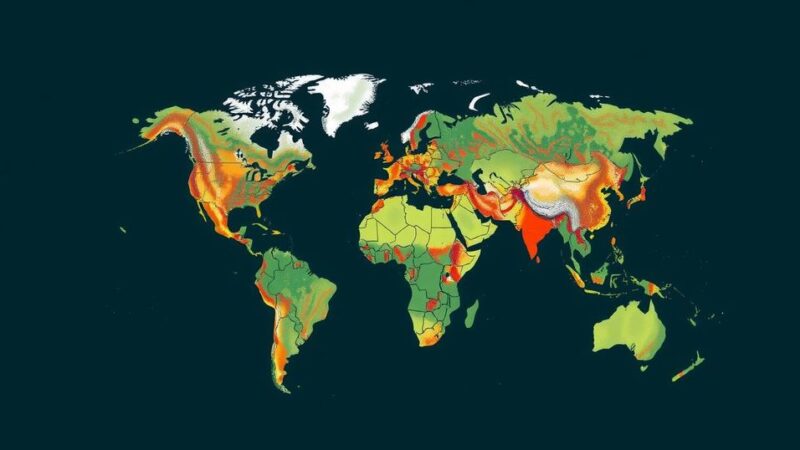Iran’s involvement in defending Assad during the Aleppo offensive is becoming increasingly challenging due to its entanglements in Gaza and Lebanon. The ongoing conflicts demand strategic resource allocation and effective coordination among Iranian and allied forces to ensure continued support for Assad amidst the threats posed by opposition factions.
The conflict in the Middle East is further complicated by the escalating challenges facing Iran as it attempts to support President Bashar al-Assad in Syria amidst ongoing military operations in Aleppo. Iran’s involvement in Syria is critical not only for maintaining the Assad regime but also for preserving its influence against both regional adversaries and foreign forces. Recent developments have raised questions regarding Iran’s capacity to provide adequate support while simultaneously addressing its engagements in Gaza and Lebanon, where tensions have surged. The ability of Iranian forces to project power effectively across these conflict zones will be instrumental in shaping the future dynamics of the region, particularly in a scenario where the Assad regime faces intensified threats from various militia and opposing factions.
As the Aleppo offensive unfolds, Iranian support is increasingly viewed as crucial to stave off further territorial losses for Assad’s regime, as losing Aleppo could significantly diminish the regime’s already tenuous grip on power. Coordination among Iran, Hezbollah, and other allied forces remains essential to counteract the challenges posed by a coalition of opposition groups. Therefore, the Iranian leadership must navigate these multifaceted conflicts with strategic acumen, weighing the costs and benefits of involvement in each theater of operation.
The ongoing Syrian conflict has seen various external actors, particularly Iran, play pivotal roles in supporting the Assad regime. The Iranian strategy involves providing military, logistical, and financial support to facilitate Assad’s survival against numerous insurgent groups. Concurrently, Iran has been embroiled in multiple threats in neighboring Gaza and Lebanon, complicating its military engagement in Syria. The relevance of Aleppo in this context cannot be understated, as control over this city carries implications both for Assad’s military strategy and for Iranian regional hegemony. As tensions have risen in Gaza due to collective resistance against external aggression and the pressure of dealing with Lebanese political dynamics, Iran faces the challenge of effectively balancing its resources and efforts between these simultaneous conflicts. Moreover, the reactions of other international powers engaged or interested in the Middle East geopolitical landscape significantly shape Iran’s strategic calculations.
In conclusion, Iran’s ability to support Assad in Syria during the Aleppo offensive is under significant strain due to concurrent conflicts in Gaza and Lebanon. Maintaining operational effectiveness while managing disparate fronts presents a formidable challenge for Iranian leadership. The implications of these conflicts will not only determine the future of the Assad regime but also reshape the strategic landscape of regional power dynamics. As such, Iran’s military engagements will require adept coordination and resource allocation to safeguard its interests in this volatile environment.
Original Source: www.al-monitor.com




